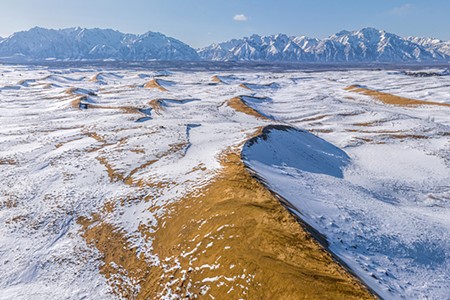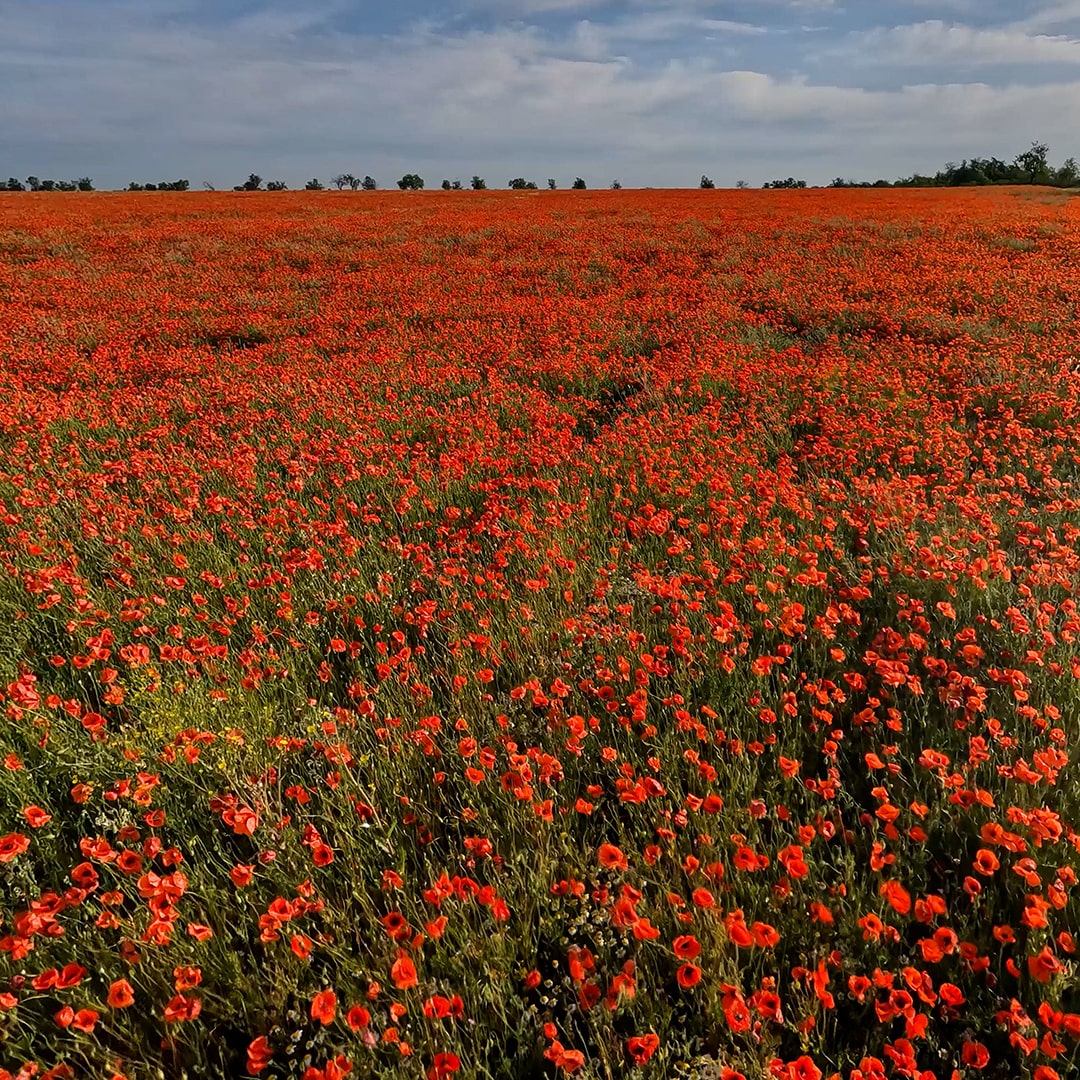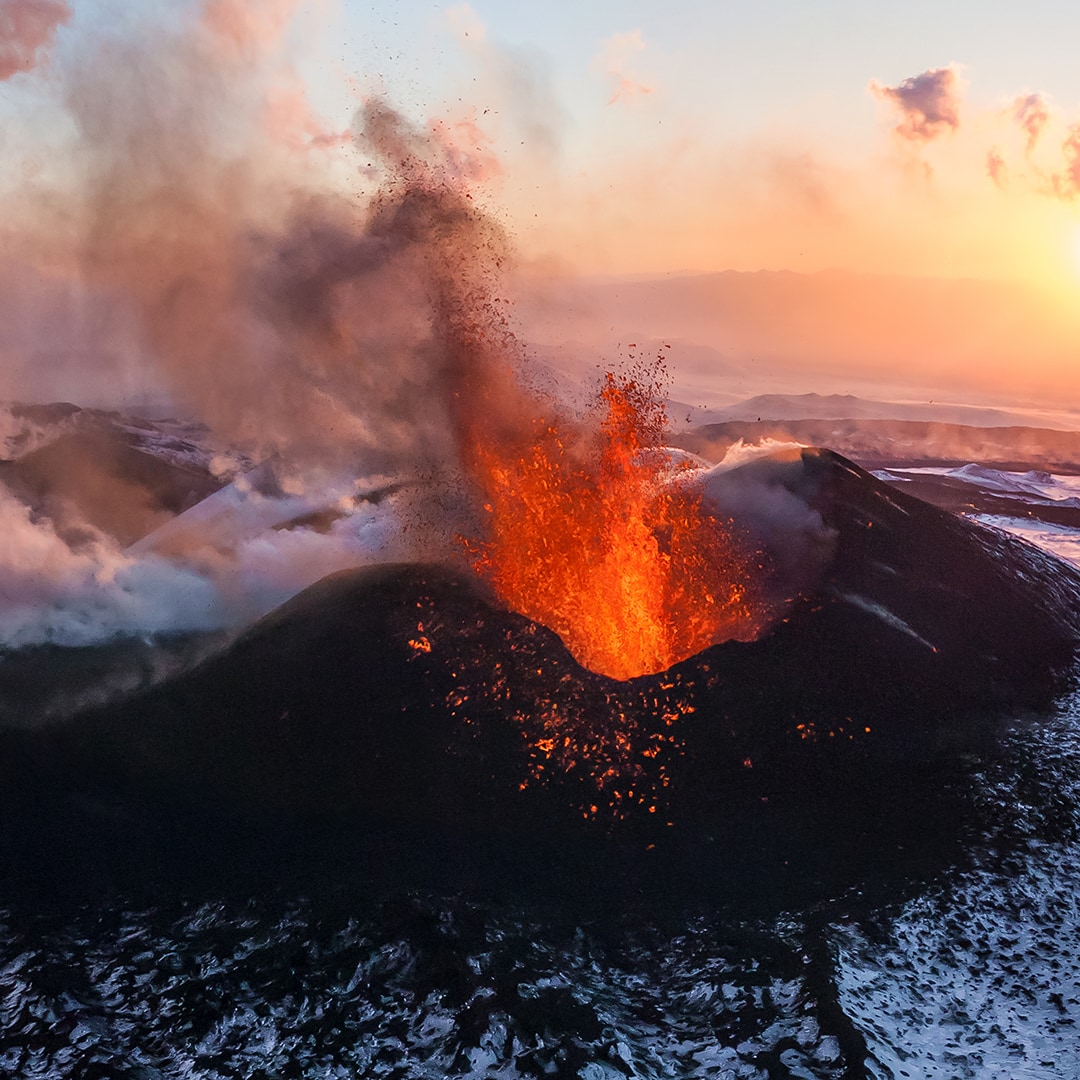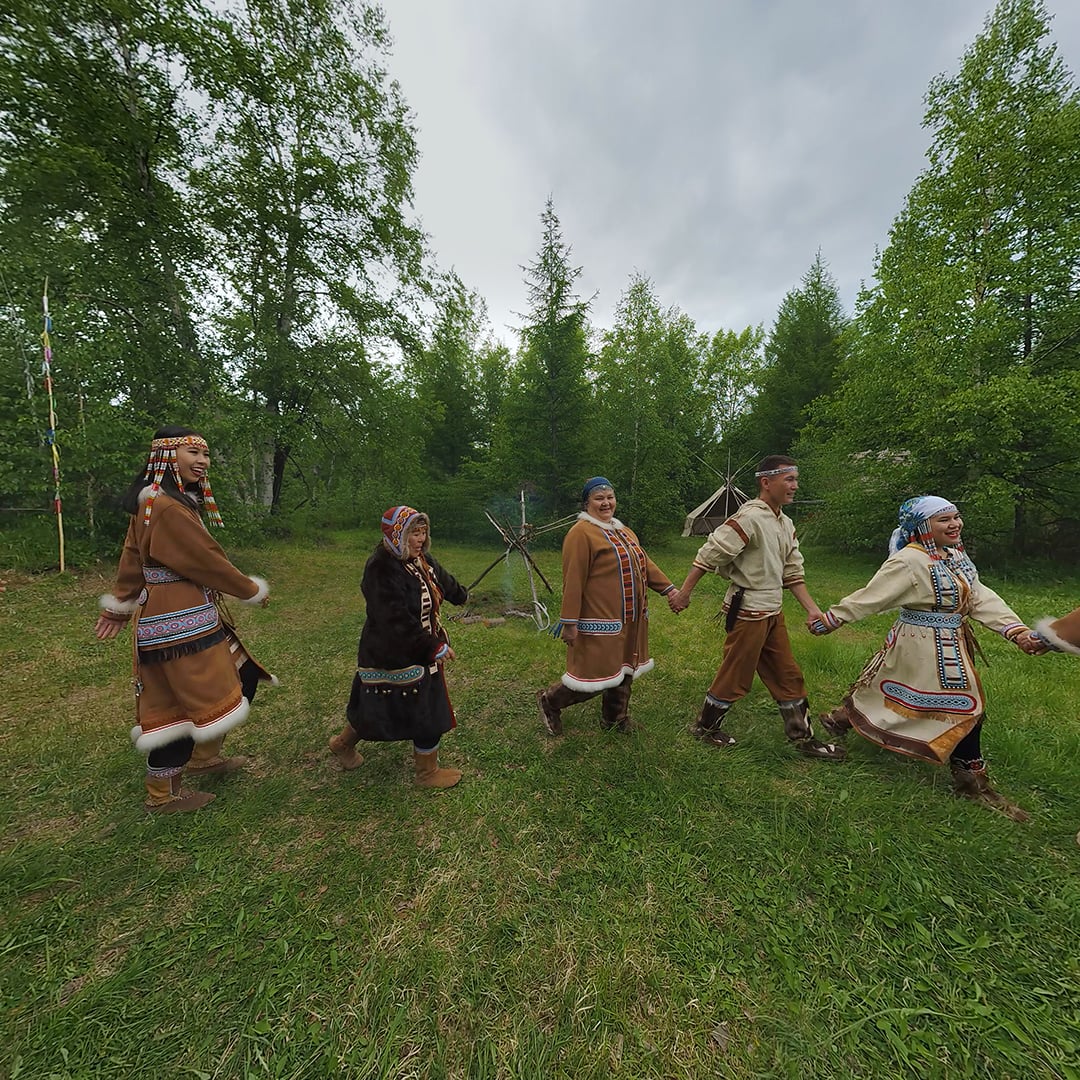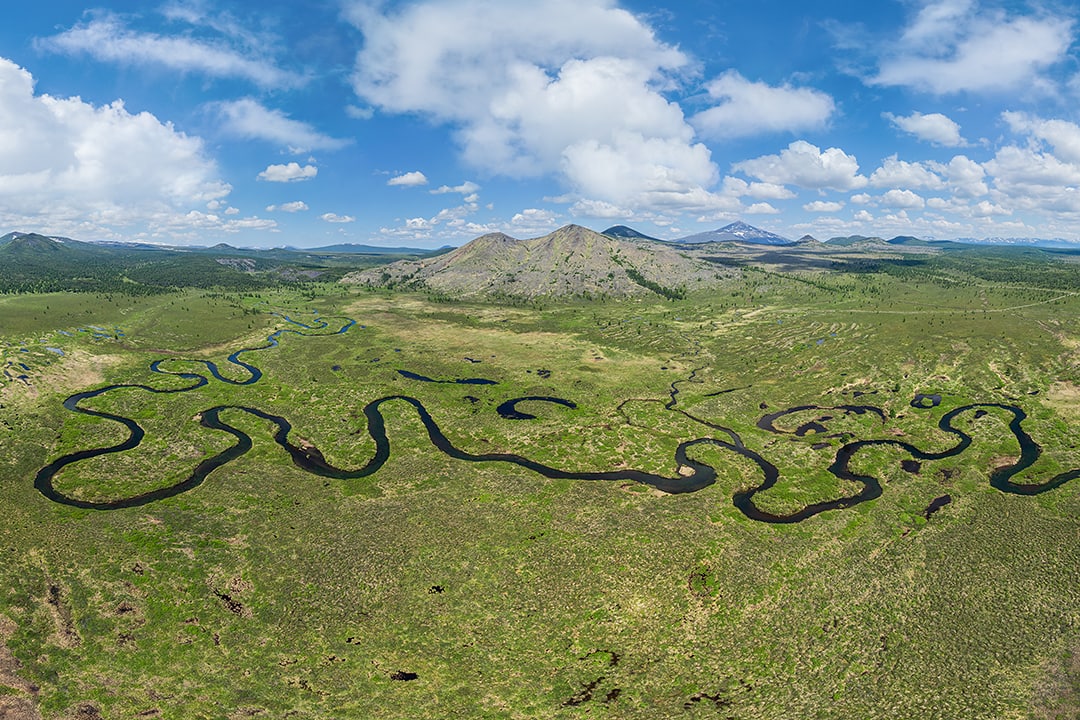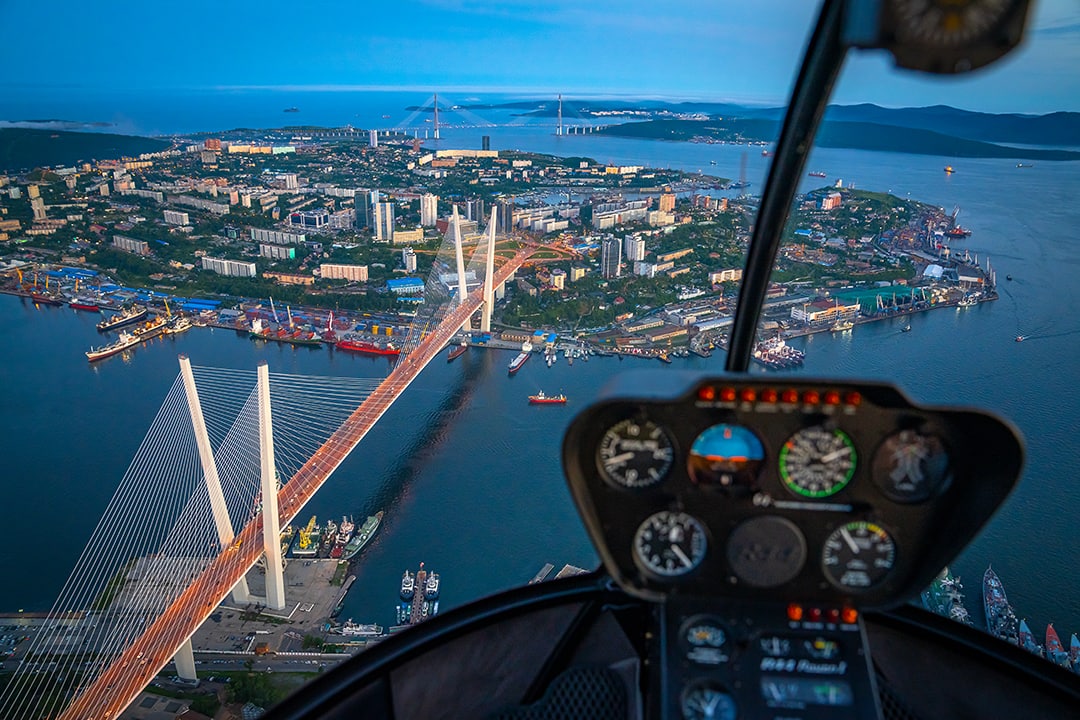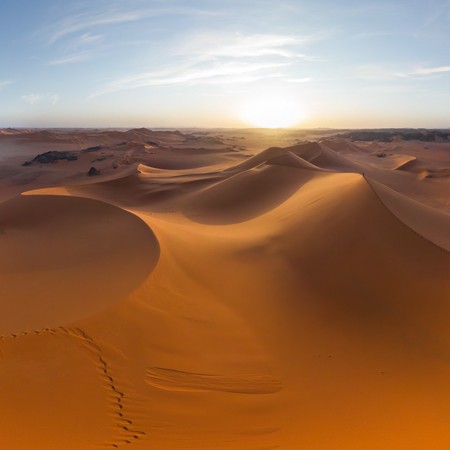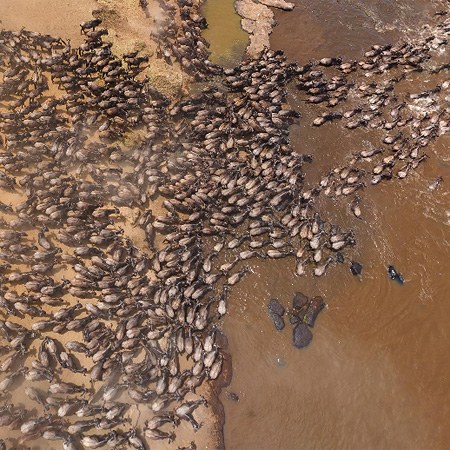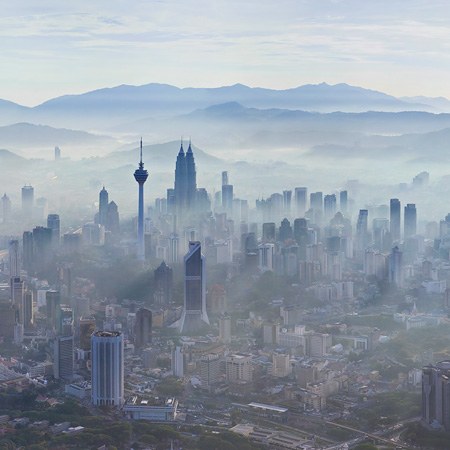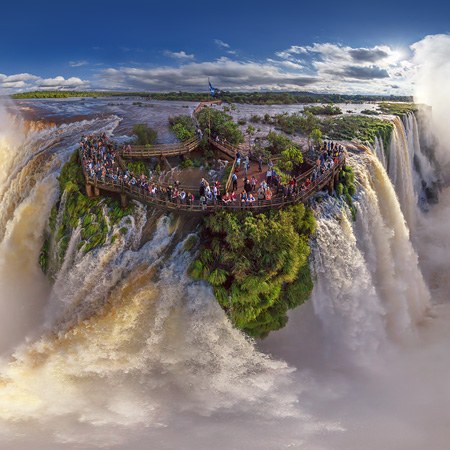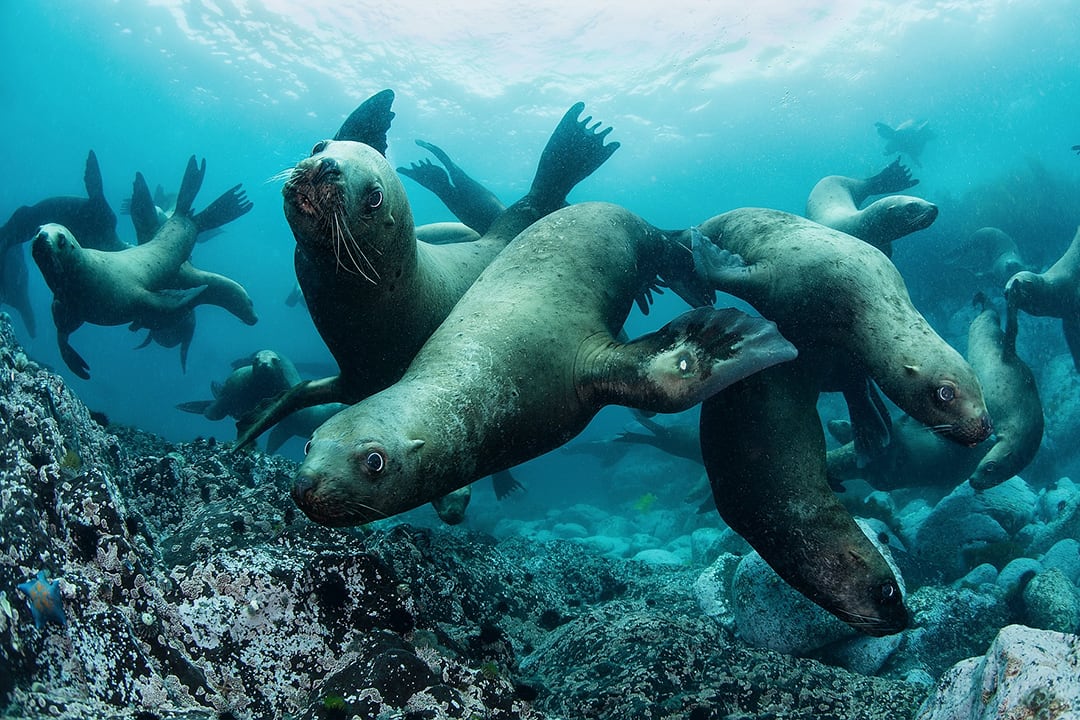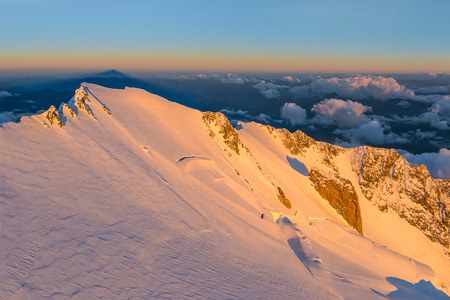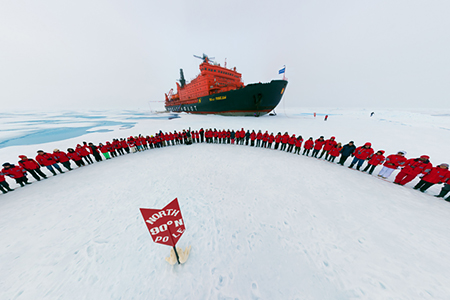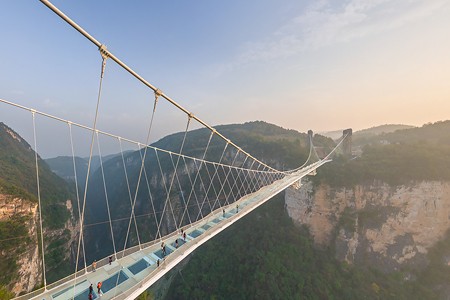Chara Sands, Russia
A contest for choosing seven "wonders", the best landmarks of the Transbaikal area, took place in 2010. A fascinating place named the Chara Sands became one of the winners: it is a sand massif covering 30 km² and lying in the Chara Basin.

Over thousands of years ago, a giant glacier came down from the mountains bringing millions of tons of sand, mud and clay. As soon as the ice age was over, the glacier melted to become a lake while in the conjunction of the ridges Kodar and Udokan, the Chara River ran down to the north. Later, the lake dried up and a great amount of sediments resting on its bottom came out on the surface. This massif suffered the actions of wind that formed dunes of peculiar shapes.

Our initial plan was to visit this place last year but there were other projects to work with and the things didn't turn out that way. When I finally had some free time, I was sent to explore the area, see the sands surrounded by snowy landscapes and assess the conditions. The travel logistics for this place was not that easy: even though I could take a flight to Chara from Chita or Irkutsk, it was cheaper to fly to Krasnoyarsk and then take a two-day train to Novaya Chara station which is only 20 km away from Chara village. In case of a flight, I could make the same-day purchase of tickets. But when it comes to a train journey, it turned out to be rather more complicated. I learnt that there is only one train per day going there at this time of the year and the tickets are usually sold out for a week in advance.

View from an altitude of 500 meters

View from Google Maps
I managed to buy the tickets for the beginning of March. I found a local driver and guide Anatoly who could bring me to any point of the Chara Sands on his off-roader but my fault was to forget to check the weather. Basically, the Chara Sands remains the desert even in winter: the wind either sweeps away the snow or carries the new layers of sand on snow. But precisely the moment I intended to go there, the snowfalls were so intensive that the wind could not deal with it and the sands were covered with a layer of snow.

The journey was postponed. I gave my tickets away and started to prepare for another trip, this time to Japan. We agreed with Anatoly to be in touch and that he would monitor the situation and report when the sand would come out from under the snow. And after my return to Russia, in case of good weather, I expected to go to the Chara Sands to explore the area.

Ironically, this journey was made possible thanks to the situation with the coronavirus. On 28 March, I and Sergey were about to fly to Tokyo but just before leaving for the airport we decided to abandon this plan: there was a high risk of getting stuck in Japan or having a two-week quarantine after our return to Russia. The decision was made to reschedule our trip to Tokyo for the fall and I bought tickets on the next available train to Chara and took a night flight to Krasnoyarsk.
It was my first time in this city. And it was the first day of the introduction of the self-isolation regime. I was struck by the empty streets and the absence of people. I had a feeling that I was in a movie about a zombie apocalypse.

Having walked around the centre and Yenisey embankment and taken photos of the Communal bridge which is widely known after it had been depicted on 10-rouble Russian banknotes, I hurried to take refuge in a hotel.
Luckily, I had a train ticket for the following day. I was the last guest in a hotel and according to the administrator, they had to close down after my departure at least for a week for the purpose of quarantine.
I was going to have a 2,000-km journey through the Trans-Siberian Railway and Baikal-Amur Mainline to the sound of the steady clickety-clack of steel wheels. And it was my first time travelling through this legendary way. What I remembered on this train ride were the rivers that crossed my way: the Yenisey, Angara, Lena and Vitim. And of course, I couldn't miss the opportunity to have a quick little peek at Lake Baikal during a long stop in Severobaikalsk.
I was already on my way when I found out that I couldn't stay at the MES (Ministry of Emergency Situations) station as it was initially planned because of the quarantine. The settlement of Chara, the closest point to the Chara Sands, doesn't have any hotels. The houses of local people are small and no one expects tourists to come here, so there was no accommodation for rent in this area. The nearest hotel is in Novaya Chara, 20 km away from the village. I rejected this option due to the unreasonably high price and inconvenience of the way needed to be done from Novaya Chara to the Chara Sands. I think photographers would understand me: the closer you live to the point of shooting, the more time and opportunities you have for the shooting process...
It was Anatoly who helped me: he invited me to stay in his relative's house. I had no choice but to agree...
An old leaning house required significant maintenance, but it wasn't the main problem. The thing was about the tacit "hosts" of this house, two cats and a dog. They were not happy about my arrival and besides, the dog took an absolutely unnecessary interest in my equipment.

To safe my devices, I created an improvised barrier in the doorway using my cases. It worked for the dog but it couldn't stop the cats that were used to sleep on a coach and perceived me as an invader. Within two weeks of our co-existence, this conflict progressed from a "hot stage" (when cats started dancing on my head in the middle of the night) to armed neutrality (in case of interrupting my sleep the cats were kindly invited to leave the room). Cat lovers, I beg you to understand: imagine that every single day you have only four hours of sleep and you have to spend at least half an hour to calm down these fluffy terrorists. I think a week of such existence would make you crazy, just the way it made me.
As I was dealing with cats and household inconveniences, several days of bad weather went by. Finally, it was sunny outside and together with Anatoly we went to the heart of the Chara Sands to explore it.
Tourists usually walk around the desert on their feet but for me, this option did not work. I had a lot of equipment to carry so we were using an off-roader.
You'd better see it with your own eyes: it is an angular and trembling vehicle made of Russian truck and car components which was working on a Chinese rattling engine... Compared to a usual ATV, the vehicle of Anatoly looked like an overgrown monster. It was extremely uncomfortable to ride it: there was no suspension and the amortization of the rough pathway was ensured only by low-pressure wheels.
Despite all these flaws, this off-roader had undeniable advantages: it could ride absolutely EVERYWHERE. Even if it is a swamp, deep snow or loose sand, this rattling vehicle, slowly but steadily, could pass any obstacle. Besides, it could also swim so we were riding across the ice without fear of drowning.

There was no heating for neither driver nor passengers. The way from the village to the Sands took around an hour. It was -28℃ outside so when we finally reached the needed point, we were frozen to the bone. Almost all the dunes were covered with a thin layer of snow and only the brown tops of the defrosted sands could be seen. During our first visit we saw the scene of an early spring desert.

After our first day out, the weather turned bad. The sky was overcast, sometimes it was snowing and I started thinking that maybe it's too early to come here for taking pictures of these landscapes. Nothing is more exhausting than waiting for the weather. The area of the Chara Sands is not so large so 2-3 days of sunny weather would be enough to capture the most significant places.

The sand massif is 10 km long and 3-4 km wide. It is shielded by narrow ridge sands that are oriented along the direction of the wind. In the central and most elevated part of this desert, there are the barkhan dunes, round and rippled. Their length is between 150 and 700 meters and its net is stretching for 2.5 km. The windward face of the barkhan is flat (10-15°), the slip face is steep.
That’s how I spent another week in this village waiting for the good weather. The sun was coming out from behind the clouds but only for a short time. Finally, the weather forecast promised several days of sun and one frosty morning we set off to watch the sunrise in the Chara Sands. I underestimated the power of the local sun: since our last visit, the snow had almost completely melted and uncovered the dunes. Some snow remained only in the forest surrounding the desert.

We spent several mornings here watching the sunrise. It was very cold but at least there was no wind. The sun was just appearing from behind the horizon and it would start to warm only 3 hours after sunrise. Long shadows started their motion towards the foot of the dunes with the white-topped Kodar mountains turning pink in the background. It is a very short moment that lasts for only 5-7 minutes and all you need to do is to try to catch this moment and the beauty of the surrounding world with your camera.
The desert stretches from the south-west to north-east following the direction of the dominant winds. The valleys of three rivers are located nearby: the Chara, Middle Sakukan and Upper Sakukan. This bright yellow desert surrounded by snowy rocky ridges, larch boreal forests, lakes and marshes is a genuine wonder of the Transbaikal area.

As we had finished capturing the desert, Anatoly suggested going to a local "Small Baikal", Lake Zarod. The roads started actively melting, so a 20-km ride took almost the whole day. (The virtual tour dedicated to the lake and the nearby surroundings will be released soon). The lake is named after the mountain standing close to it and it is only 3 km in length. As it lies inside a windy gorge, the snow is blown away from the surface of the lake. And it really looks like Baikal ice except with no big cracks.

And this ice is as slippery, as on Lake Baikal! I had the misfortune to slip and fall after another launch of the drone as I was going to the off-roader to change the batteries. A blink of an eye and I landed on my back. I felt a stroke that knocked the air out of my lungs. Also, a control panel of my drone that was usually attached to me during the flight and weighed 1.5 kg hit me in my face. For a while, I was just lying unable to move and resembling a fish washed up on the shore. I was gasping for air and spat the blood running from my lip.
Anatoly carefully detached the equipment of me and helped to get up. It's good that the only suffered thing in this incident was my lip. We reparked the off-roader to a snowbank and then we uneventfully ended the work for this day.
At our last shooting day, we went to the valley of the Middle Sakukan river. In summer, this place is a popular destination for tourists and hiking lovers. I wanted to go up through the gorge dividing the Kodar mountains and see the highest Transbaikal summits.

Local people measure the distances not by kilometres, but by hours of riding or walking. Anatoly said that the way to the Kodor mountains would take 5 hours. Then it all would come down to luck: the road is really bad making one move no faster than a pedestrian. At some point, Anatoly turned from the road to the frozen river bed. It was weird to move along the river and it felt like flowing through it. The only difference was that instead of a boat we had a roaring off-roader.
The Sakukan is a mountain river with a significant height difference. At the spots of rifts and rapids, I could distinguish huge boulders under the ice. 20 minutes along the river saved us around 1.5 hours of the same way down the road. Such strange mathematics.
We were gradually moving into the gorge when our luck ended. At some point, we got in the spot where snow and ice could not cover huge rocks any more. Anatoly had to steer a course between the stones and sometimes to climb on them. The vehicle was pitifully creaking and rattling with its parts and in a couple of hours, it finally broke down unable to withstand this kind of abuse. It was good that the breakage was not crucial and we managed to return to our home afterwards.

I launched the drone and got oriented with the help of a map. I saw that there were still 17-20 km to the most interesting summits and there was no chance to reach them. Well, it is a good reason to come back to these beautiful places again! Having eaten some sandwiches and drunk some tea, we went towards the village of Chara.
That night I took a train to Krasnoyarsk. I was expecting to shoot the famous Stolby Nature Reserve. But that's another story to be told...
We would like to express our gratitude and appreciation to the guide and off-roader driver Anatoly Markin and to the Kodar National Park, represented by its head, Andrey Davydov, for their assistance throughout the shooting process.
Photos and text by Stanislav Sedov
27 May 2020
Read more
Photogallery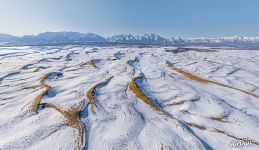 Snowy Chara Sands
Snowy Chara Sands
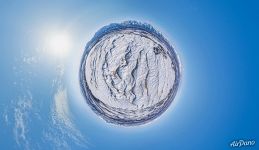 Early spring in Chara Sands. Planet
Early spring in Chara Sands. Planet
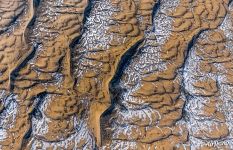 Chara Sands
Chara Sands
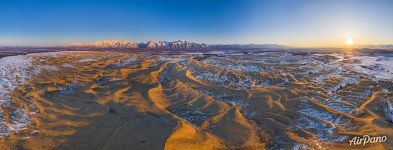 Chara Sands
Chara Sands
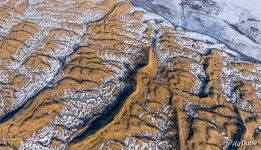 Chara Sands
Chara Sands
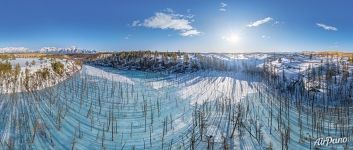 Swamp
Swamp
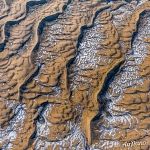 Chara Sands
Chara Sands
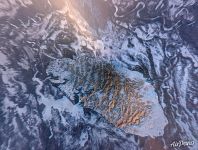 Chara Sands
Chara Sands
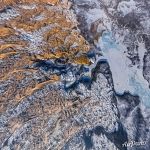 Above the northern part of the desert
Above the northern part of the desert
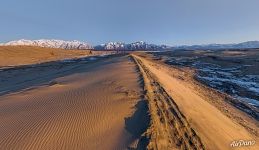 Dune at dawn
Dune at dawn
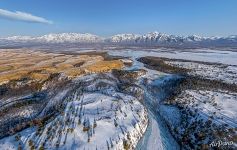 Northern part of the desert
Northern part of the desert
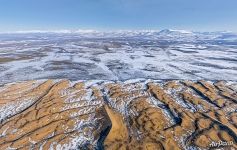 Chara Sands and Udokan mountain range
Chara Sands and Udokan mountain range

